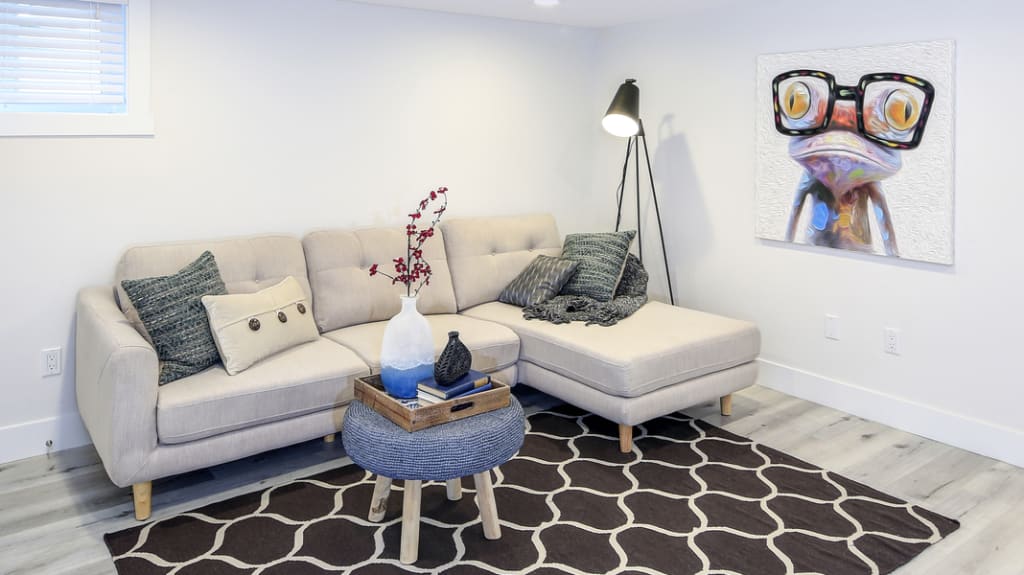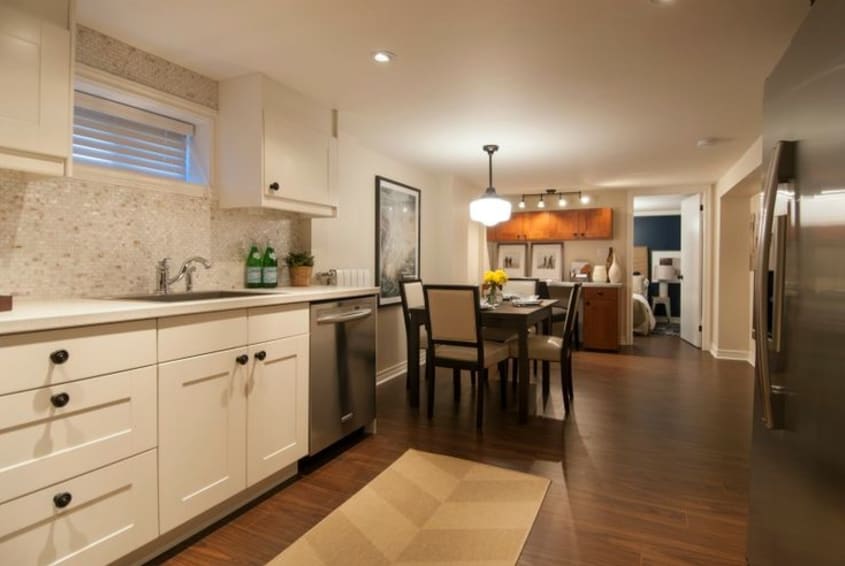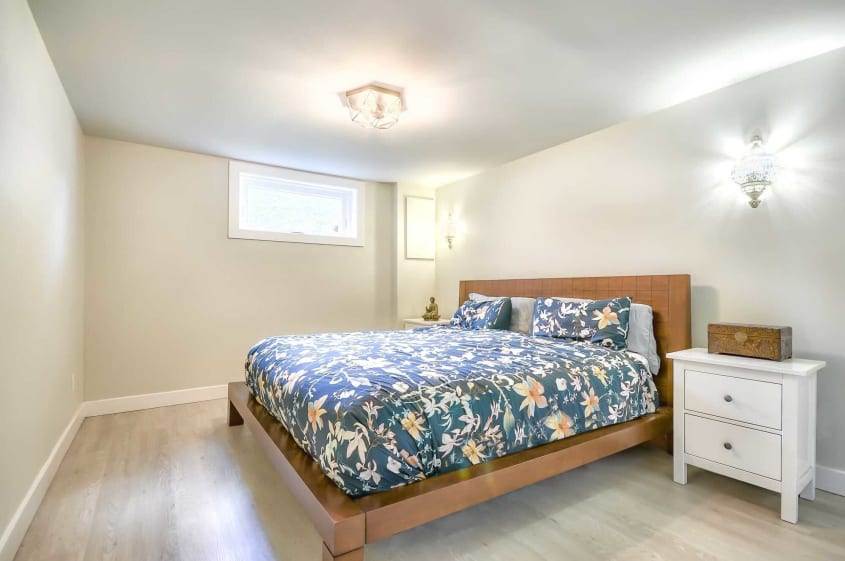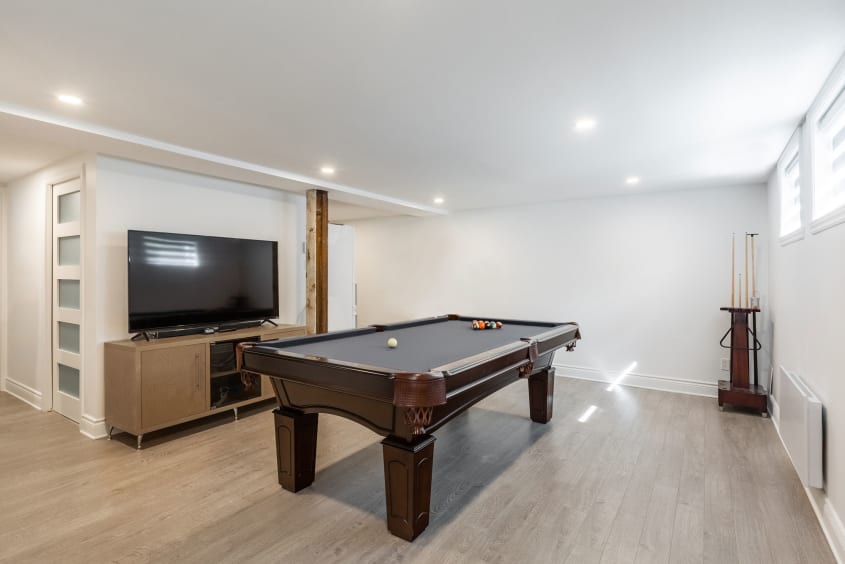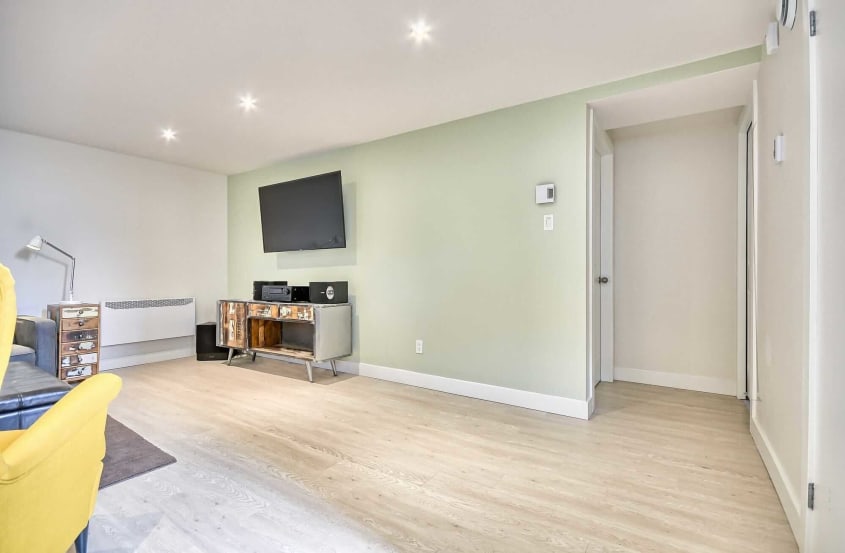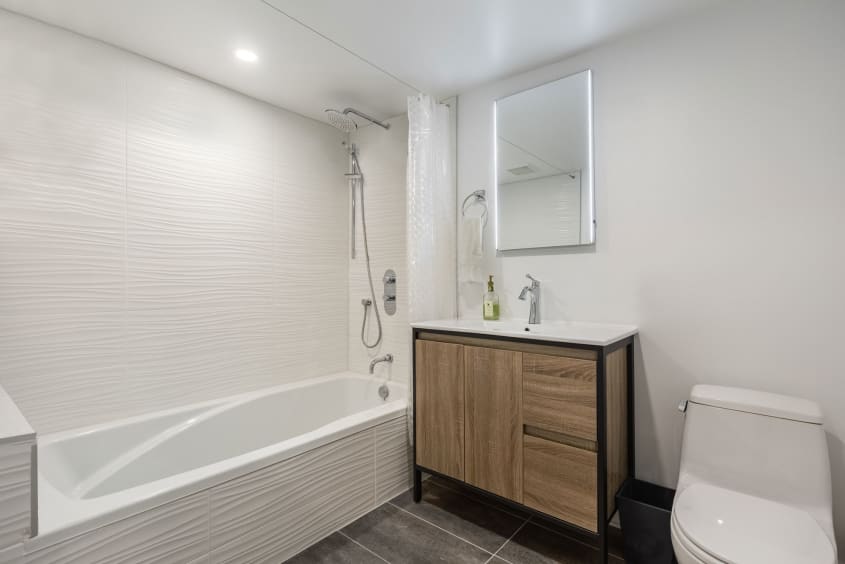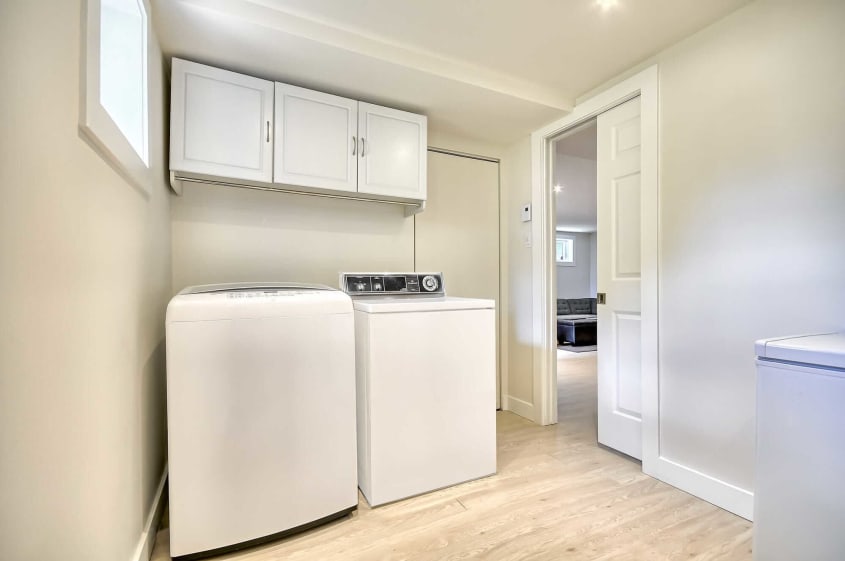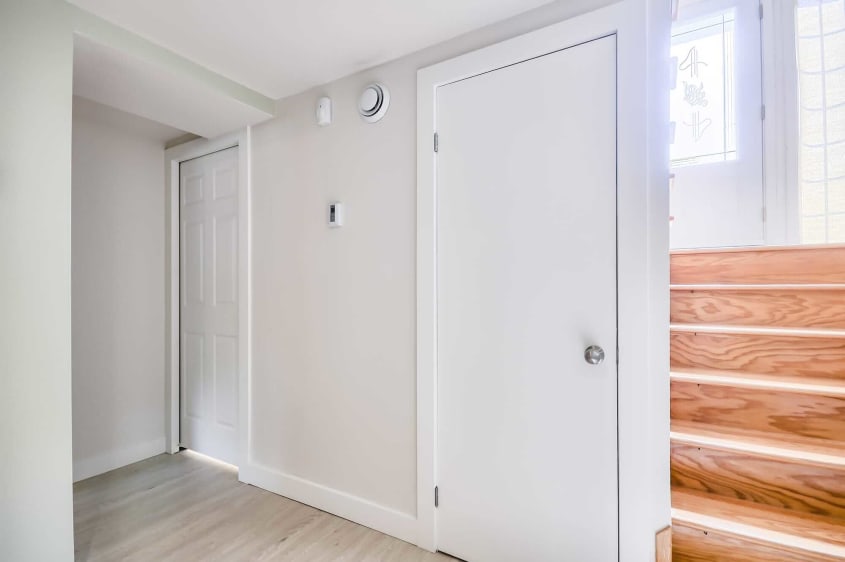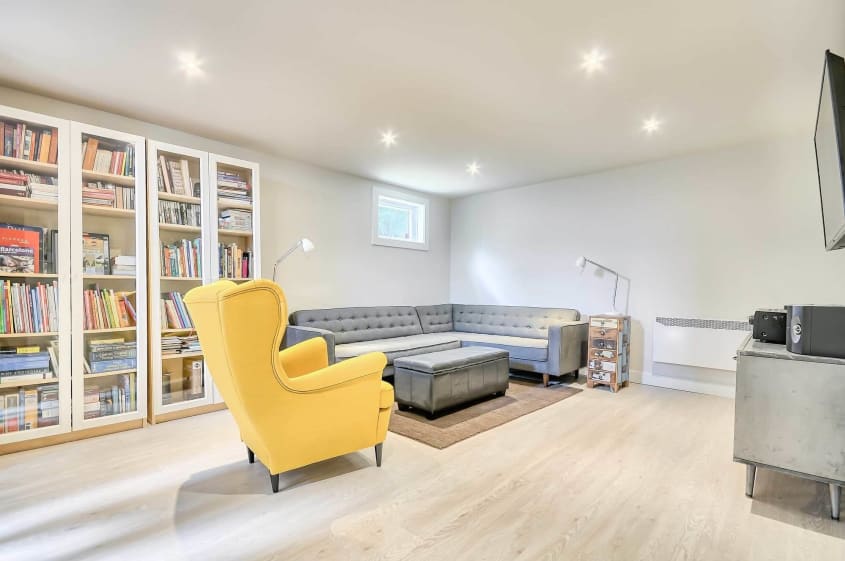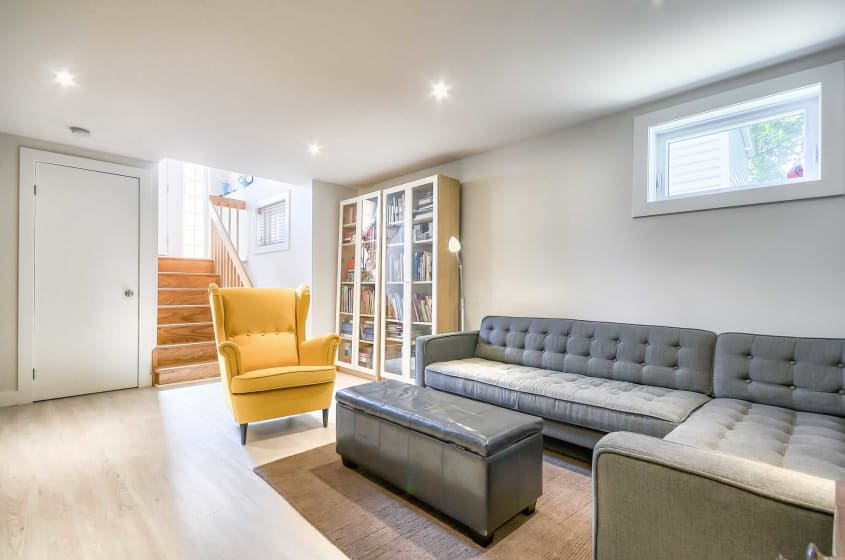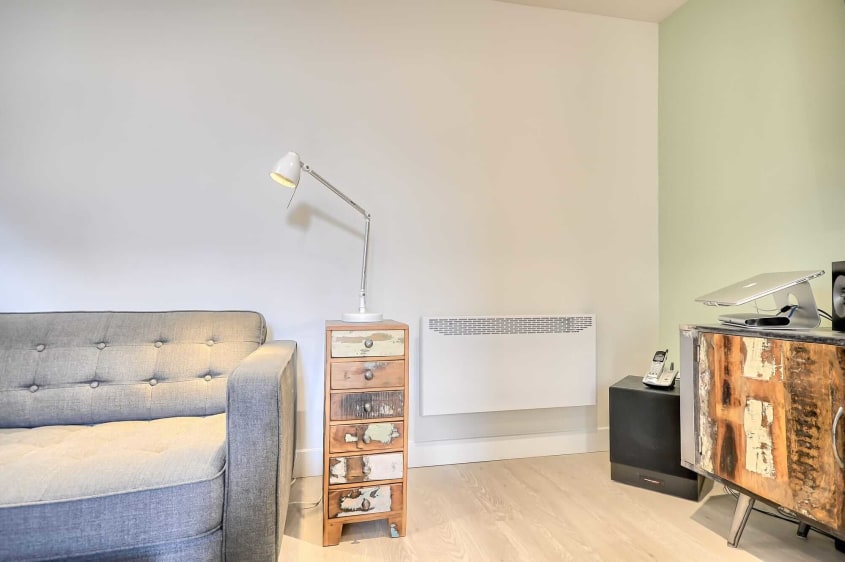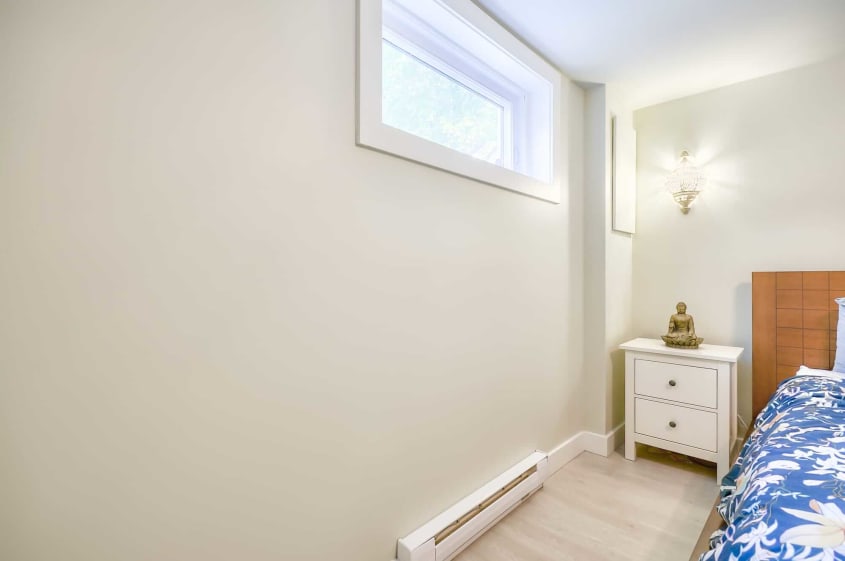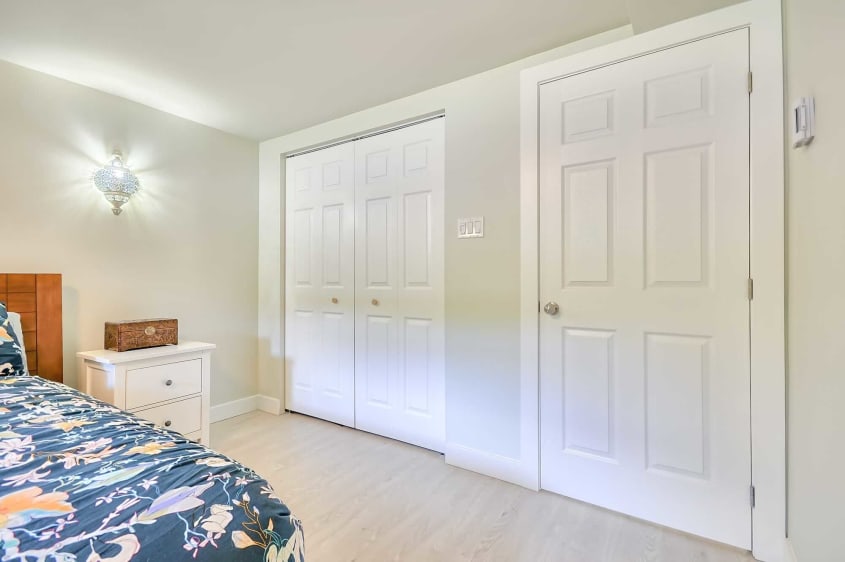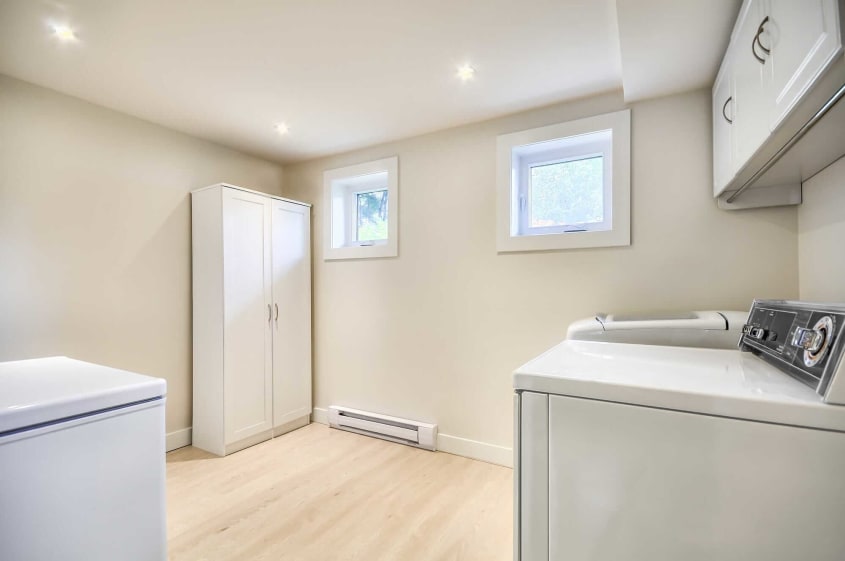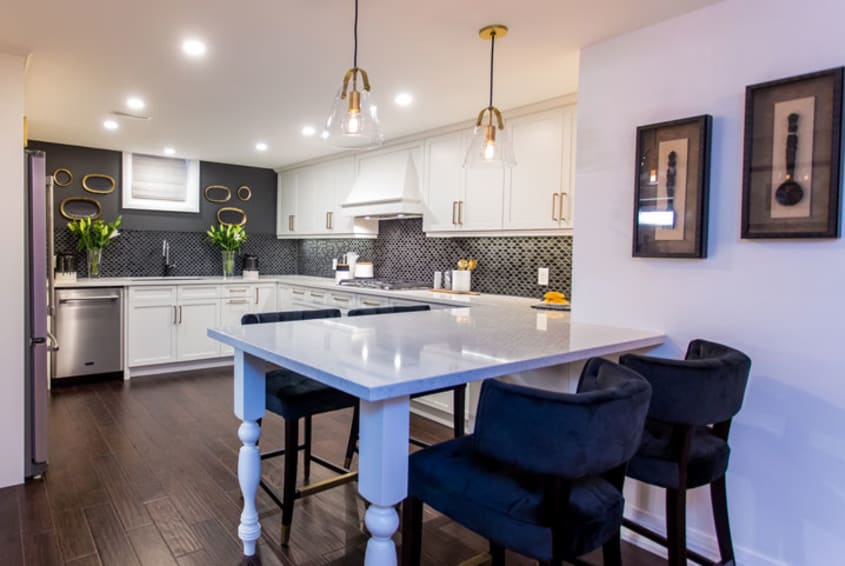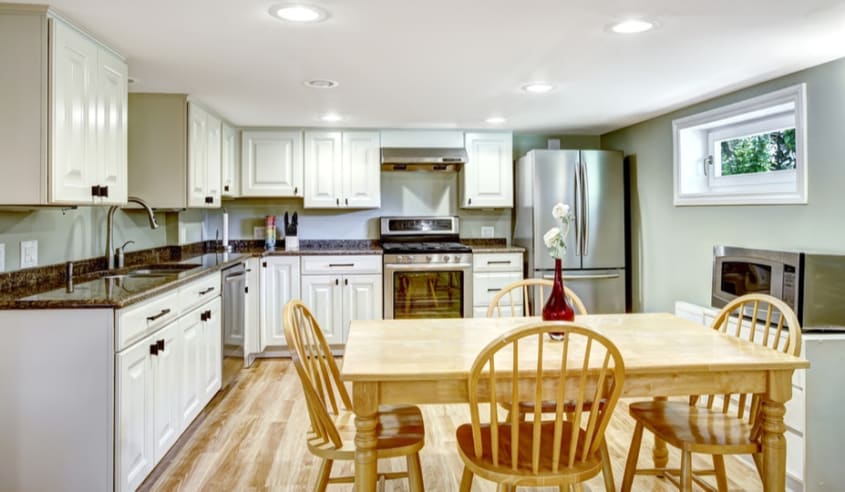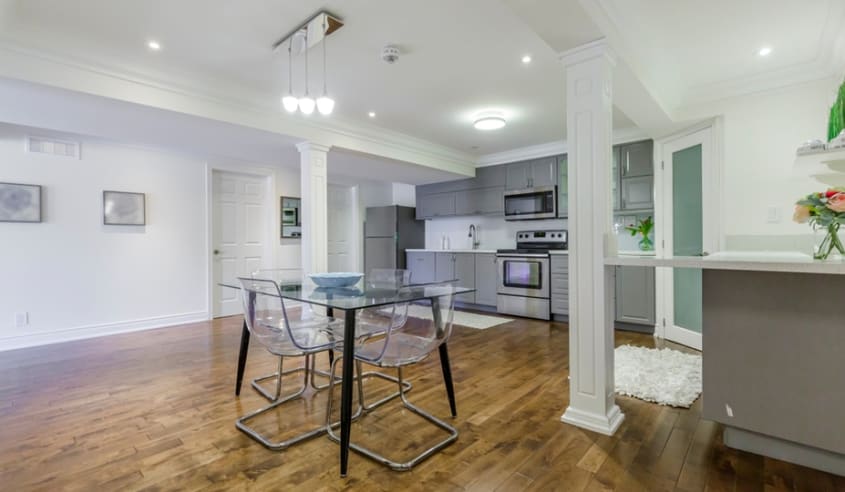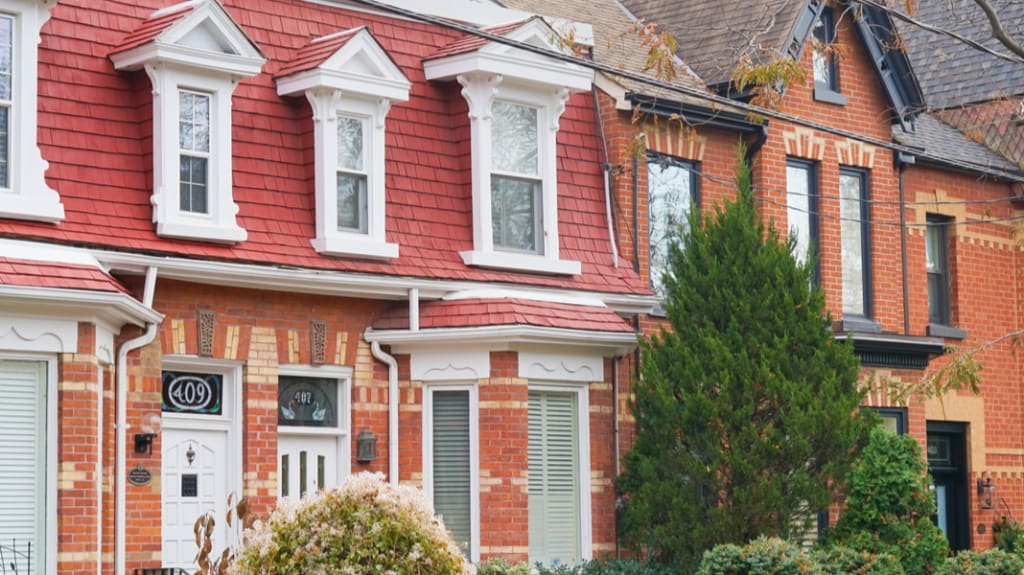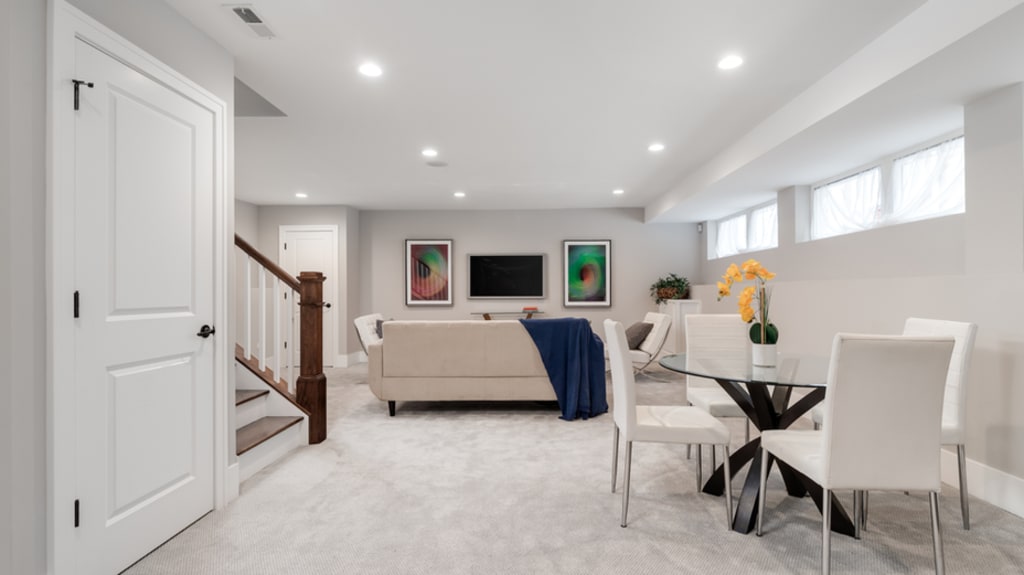Whether you’re finishing your basement or remodeling your current one, the costs can quickly add up. It’s important to know what how to stay on budget, and where to invest your money wisely. Our Renovation Advisors have come up with 10 tips to help you save on costs, to help you get the most out of your basement renovation!
1- Start with a plan
With any renovation project, it’s absolutely essential to have a clear and detailed plan before doing anything. This means defining your budget and your scope of work. A basement renovation can entail many things, from adding rooms, plumbing, waterproofing, soundproofing, digging into the foundation to have legal ceiling height, etc. You need to know what exactly is required to have your vision come to life, and how much that will cost. This will allow you to maybe pair down your original plan, to make sure you can operate within a reasonable budget. It’s important to be realistic from the start about what you want, and what you are willing to spend.
As always, plan a contingency budget for unexpected expenses. In basements, that can come in the form of water damage, humidity problems, or mold remediation. There may be problems lurking under the existing drywall or floors you cannot see, but that are necessary to address.
2- Think about your long-term goals
Are you planning on staying in your home forever? Would you like to sell your home in the near future? The answers to these questions should influence your plan. If you are looking to design a basement that fits the specific needs of your family, then you should invest in having the space work best for you.
If you plan to sell your home in the near or even distant future, consider the market trends. Renovating to sell will require a different plan than renovating your forever home. Look at the homes in your area to understand what potential buyers expect in a basement. While you may love the idea of an entertainment space with a full wet bar, the homes in your neighbourhood may have additional living or bedroom space in their basement. To be able to be competitive with the comparables, it’s important to give buyers what they want.
3- Treat any signs of moisture
Basement humidity can be a big source of problems for your space, and your home in general. Before starting any work, be sure there are no signs of excessive moisture in your basement. These can be the presence of mold, condensation, water infiltration, or others. Not taking care of these issues before beginning renovations will likely cause you to have to repair or redo parts of the work later. If you do not treat water accumulation on the concrete slab before putting down flooring, you risk damaging the flooring, which will then need to be torn up and redone.
4- Opt for an open space instead of closed off rooms
If you’re looking to make a games room, a rec room, or simply finishing the basement for resale, leaving the space open is a great way to save on costs. Building walls requires support structures, additional drywall, and possible electrical and plumbing work. With open concept design still at the height of home trends, you can still easily create a multi-purpose space without needing to take on the extra cost of dividing up rooms.
Another way to save money is to forgo drywalling the ceiling or walls. This can allow for a more industrial look, and can be easily painted to make it more of an intentional design choice than something “unfinished”. Not only does this save on the cost of drywall, but leaving the ceiling open allows easy access to essential ducts of your HVAC system.
5- Invest in the essentials
Even though there are many ways to cut costs for your basement renovation, there are certain things that are worth the investment. If you’ve experienced problems with humidity, it is possible that it’s from an old or inefficient system. To avoid these problems again in the future, putting extra money into those things are necessary. If you’ve had issues with energy loss or water infiltration because of poor quality windows, you should invest money in better quality, energy-efficient windows to save you money in the long-run. While you may not see the value in choosing expensive windows or a sump pump over a projection screen, it is a smart investment for long-term savings.

6- Know when an expert is needed
Going the DIY route may seem like the simplest way to save money, but that is not necessarily the case. As mentioned, there are a lot of factors to consider when taking on a basement renovation, so be sure to be smart in what you do yourself. Forgoing the services of an interior designer may be a way to cut costs, but trying your hand at electrical work is not advised.
Looking for a verified and specialized contractor to carry out your electrical or plumbing work? Our HomeExpress online referral service can help by providing you with recommendations you can trust.
Hiring a General Basement Contractor is always a safe bet, because they will be able to take on every part of your project and ensure it’s done correctly. Providing them with materials you’ve purchased yourself can be a way to lower your spending, but for installation and to ensure your basement is to code, trusting the expertise of a contractor is a smart use of your money. Having to redo or repair incorrectly installed plumbing, electrical, drywall, etc will likely cost you more money than you thought you’d save.
7- Forgo over-customizing
Even if you don’t intend on selling your home, having a highly customized basement will cost more money. Prefabricated cabinets, TV units and shelving are a simple way to save money. If you’re finishing a basement, you should be able to easily accommodate prefab items without having to plan for custom ones.
Your contractor may be able to get you additional savings on materials with their suppliers, if they have end of season items or overstock. Let them know what you’re looking for and what your budget is.
8- Skip structural changes
If you’re renovating an already finished basement, consider leaving the layout as is. Moving plumbing, electrical work and walls will require more work, which will cost more money. You will also likely need more permits, and inspection, to ensure the changes you are making are up to code based on your municipal rules.
9- Avoid high-end finishes
The most obvious way to stay on budget is to skip high-end finishes. There are a lot of choices on the market for light fixtures, furniture, tiles, etc, so it’s quite easy to find materials that will look great and not break the bank. Look for sales and end of season clearance if you’d like to get some great deals on a few high-end items, while still staying on budget.
Because you’ve designed your basement for a certain purpose, be sure to choose items that are functional. A large white leather sectional may be beautiful and on sale, but if you have kids and pets, it will likely need to be replaced sooner than something lower end but designed for wear and tear of a family!
10- Consider an income suite
While this is certainly not a budget-friendly project, it can pay off in the long-run. With vacancy rates getting lower and lower, converting your basement into an apartment can be a great way to make extra money. It could also appeal to potential buyers if you choose to sell your house. Be sure to research permits and building codes in your area thoroughly before investing in this option, as it can be quite an undertaking. If done right, it can be a great investment that pays for itself in a few short years.
Getting your basement renovation started
With these tips in mind, it’s time to plan your basement renovation. We understand the difficulties that come with finding a reliable and high-quality contractor for your project, so let us take away that stress! Our Renovation Advisors can invite up to three Verified Contractors to submit quotes for your renovation and help you decide which one brings the most value to you. Appelez-nous today or fill out our form to get started!

